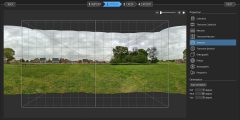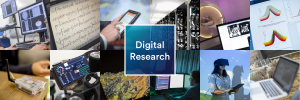Making data meaningful for those with colour blindness
June 30, 2020
We look at some of the open source software helping researchers to make their research findings accessible to those with colour blindness, driving equality and inclusiveness. Eight percent of men are affected by colour vision impairment, having difficulties distinguishing between colours and thereby confusing certain colours that the majority of people see readily. As researchers …
Expand your research possibilities
June 25, 2020
Expand your research possibilities, share your research, find an expert. In an increasingly digital world, new technologies can help develop research by boosting the reuse of data and developing new collaboration opportunities. Reusing research provides numerous benefits. In the first instance, accessing current or previous data sets, information, and knowledge can help support and develop …
50 code challenges in 50 days
June 15, 2020
For the last few weeks, we have been posting a daily code challenge to the Research Software Network Team. Today marks fifty working days since the first challenge. It has been great to see the enthusiastic engagement with the challenges by colleagues from all stages of their careers. There have been really constructive conversations in …
Trouble Finding Wally? Train a Custom Object Detection Framework to Find Him For You
As part of the Discovery Programme vision, which is to support and empower researchers by providing an advanced digital environment, this blog post aims to introduce researchers to an open source object detection framework that can be re-trained using their respective datasets. Opensource libraries and API’s have made it possible for researchers to easily train …
Features of the Research Data Repository
This blog explores some of the features and benefits of the University’s Research Data Repository. The Research Data Repository is a platform for storing and promoting your data. It allows you to make your raw data and other outputs accessible to others and guarantees their secure storage over the long term. *** In a series …
COVID-19: Digital Research support for researchers
June 12, 2020
As this extended period of home working continues, our research community faces ever more challenges in maintaining research and is increasingly looking towards digital technology for support. *** Whether it’s to maintain our strong ethos of collaboration both internally and externally, collect and store data, analyse findings, or conserve and preserve outputs, researchers are having …
Helping Research with Windows Virtual Desktop
June 1, 2020
This post highlights the University’s Windows Virtual Desktop service, which can be used to assist research during the COVID-19 lockdown. When COVID-19 hit, researchers found they no longer had access to software on computers in their offices or to resources, such as Augusta (the University’s High Performance Computer), that have historically been accessible only from …
Using photogrammetry to create digital rooms and landscapes
May 14, 2020
In a previous blog post, we introduced an easy way to create digital 3D models. It is also very easy to capture physical environments in 3D. You can do this using free tools and just a smartphone or basic camera. There are plenty of reasons for researchers to want to capture environments, from disciplines such as …
Cloud computing – an introduction
May 1, 2020
In this blog, we discuss how researchers can use cloud computing to enrich their analyses and overcome challenges of remote working. COVID-19 is forcing us to rethink processes and develop new digital skills. An attractive option is cloud computing, which can help researchers perform specialist tasks on virtual, “rented” computers. Microsoft Azure is one of …
Exploring photogrammetry and digital 3D models
April 16, 2020
You can create good-quality digital 3D models without technical knowledge or the need for costly equipment. In this blog, we use a mobile-phone and some free software to create an interactive 3D model. Each year, the Digital Research Specialist Team runs ‘digital initiatives’, an opportunity for researchers to explore new and emerging technologies. Past examples …












Recent Comments